Does Having a Large Park in Tebet Improve Air Quality?
Tebet, a sub-district in South Jakarta, is a densely populated area that is home to various ethnicities and cultures. Based on 2021 data, Tebet Sub-district, which is bustling with shops, restaurants, and public facilities, is the home of around 221 thousand people. Tebet even has a 7-hectare city park called Tebet Eco Park.
Being an area that is always visited and settled by many citizens of the capital city, and has a green area equivalent to 102 soccer fields, how about the air quality in Tebet?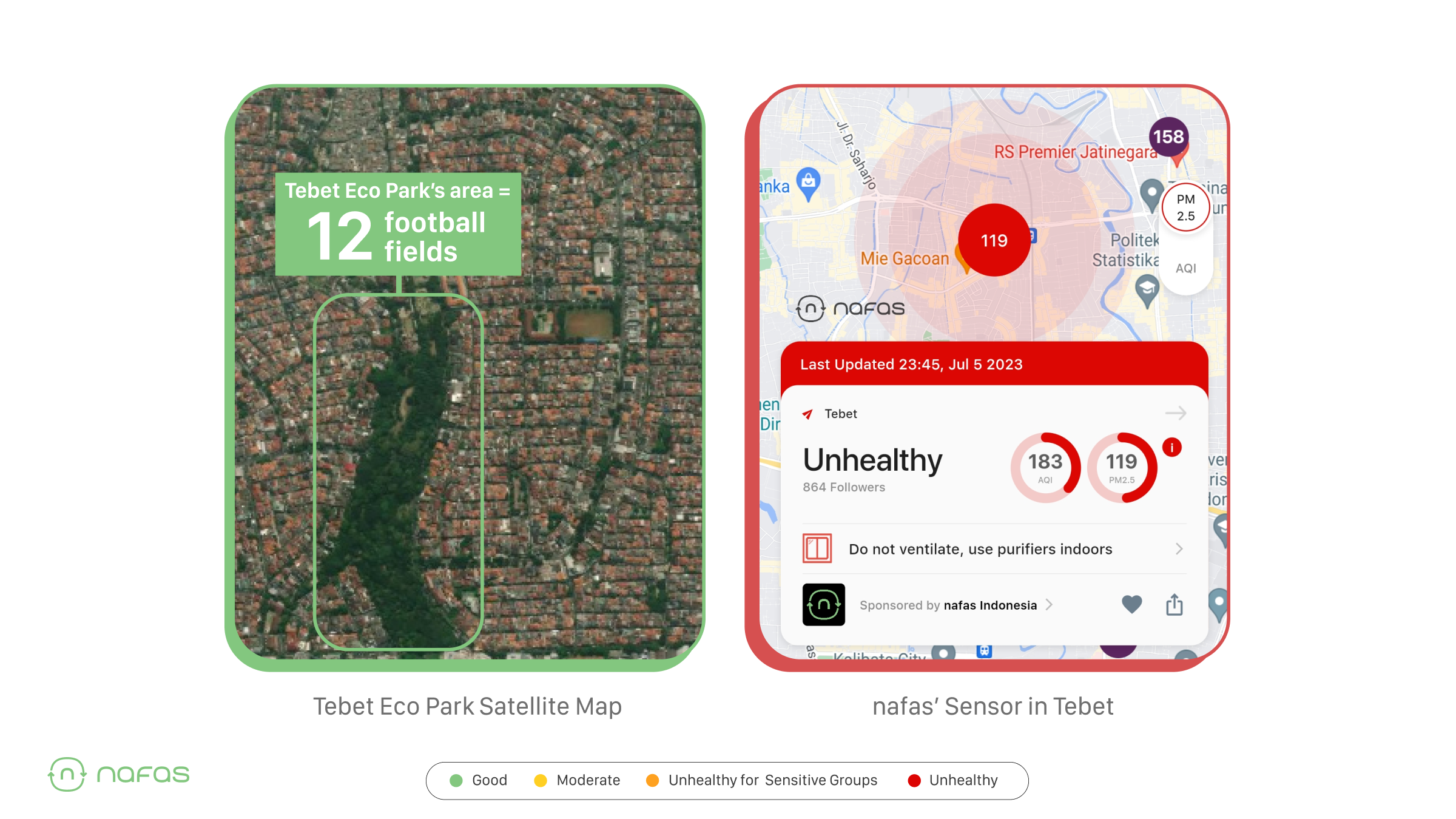
To answer that question, Nafas has summed up the data collected by the Nafas sensors at each location and compiled it into a #HIPERLOKAL topic - you can read the first #HYPERLOCAL article about Pluit here.
Now, let's take a closer look at the air quality conditions in the Tebet area!
Air quality in Tebet and DKI Jakarta is surprisingly not much different
Having such a large greening area is still insufficient to improve Tebet's air quality. Now, let's compare Tebet and DKI Jakarta air pollution data!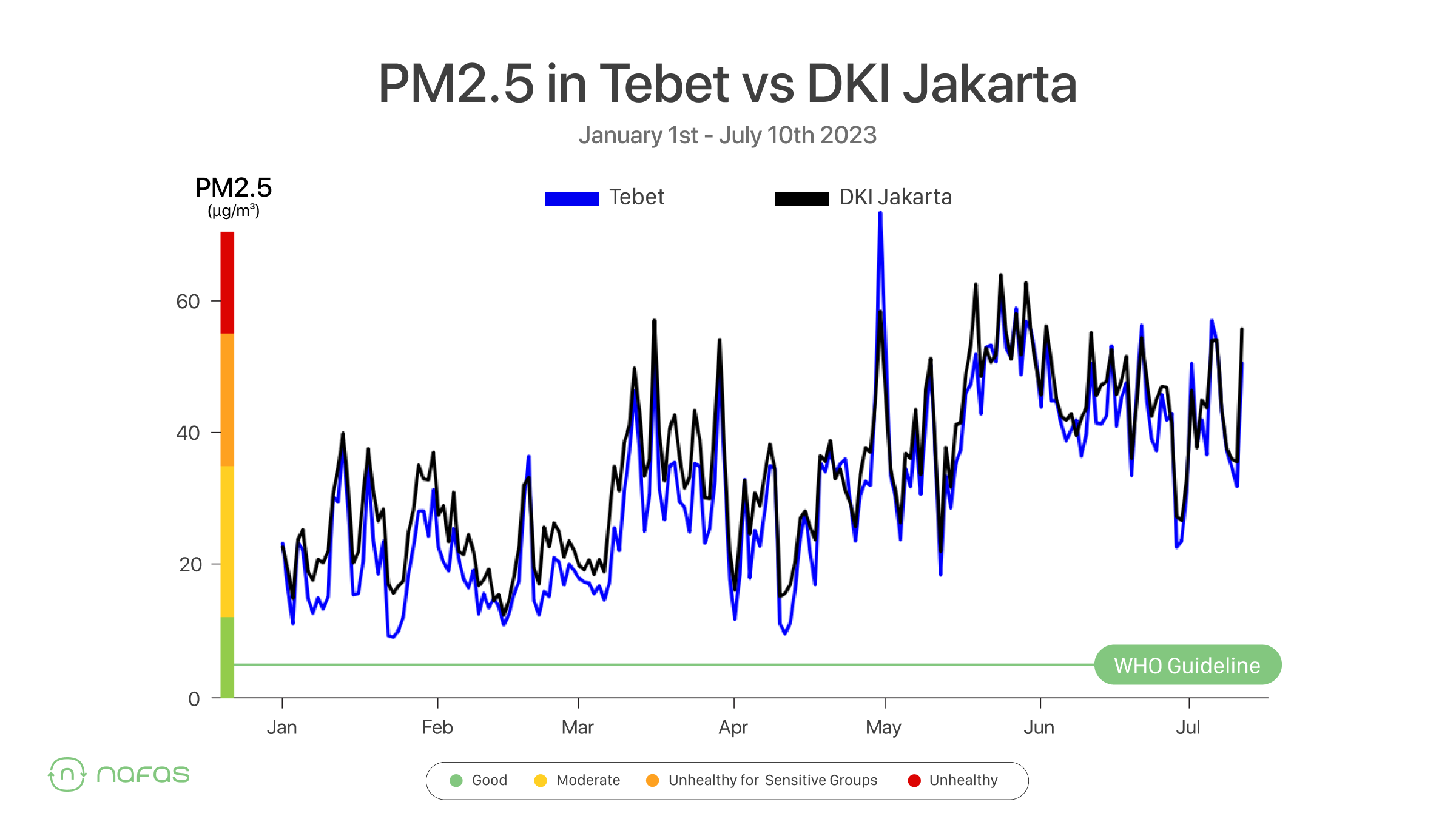
The graph above illustrates the amount of pollutants in Tebet (blue line) and DKI Jakarta (black line) from January to July 2023. From the data, Tebet's air quality looks fluctuating, not always good, and not always bad. The amount of pollution also looks not much different from air pollution in DKI Jakarta.
From the graph above, it seems that the air in Tebet and DKI Jakarta has an average air pollution that is relatively similar, with only a slight difference of 2 µg/m3 with DKI Jakarta having more.
Air quality conditions in Tebet in June 2023
June 2023 seems to be a period of unhealthy air for Tebet citizens. The reason is, the air in Tebet is dominated by unhealthy quality, both for sensitive and general groups. Only at the end of June did pollution levels drop and air quality ranged from moderate to good.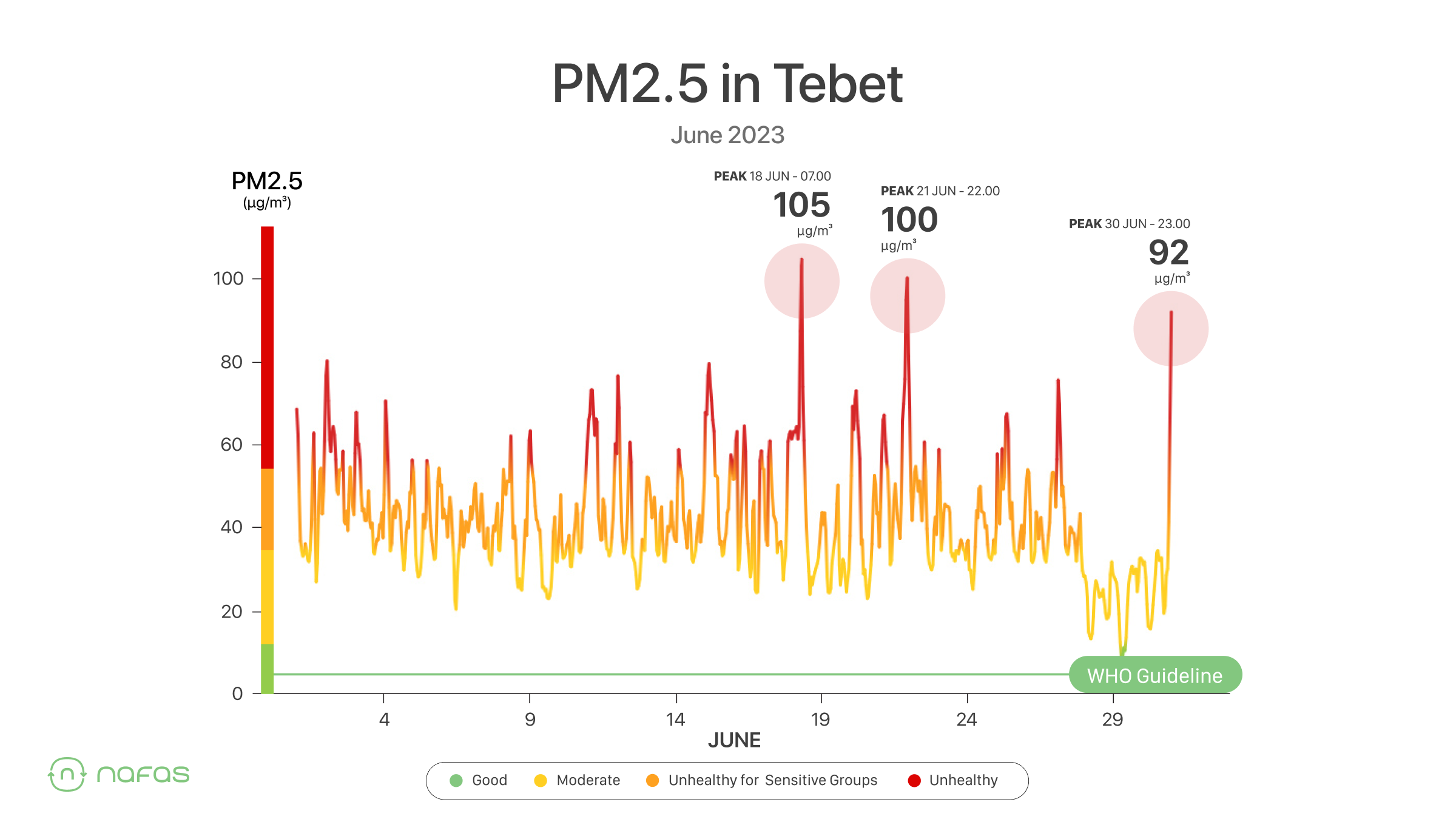
Let's take a closer look at Tebet's air pollution data below!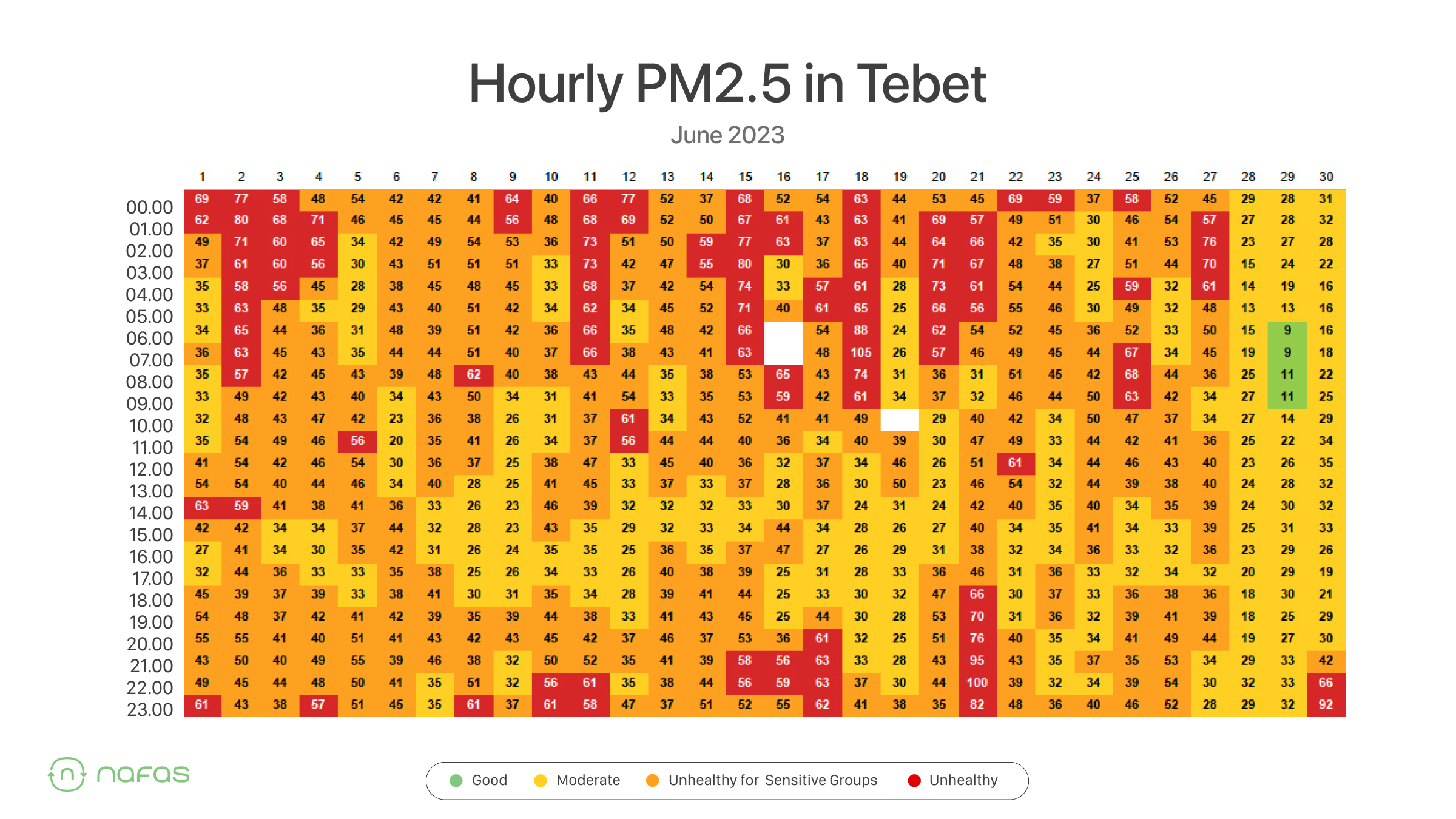
In June, the amount of pollution increases every day. In fact, on June 18, 2023, the Nafas sensor measured PM2.5 in Tebet to be 105 µg/m3 or 21x above the WHO annual exposure limit!
You might also be wondering, is the pollution in Tebet really that bad throughout the day? Let's take a look at the diurnal data below!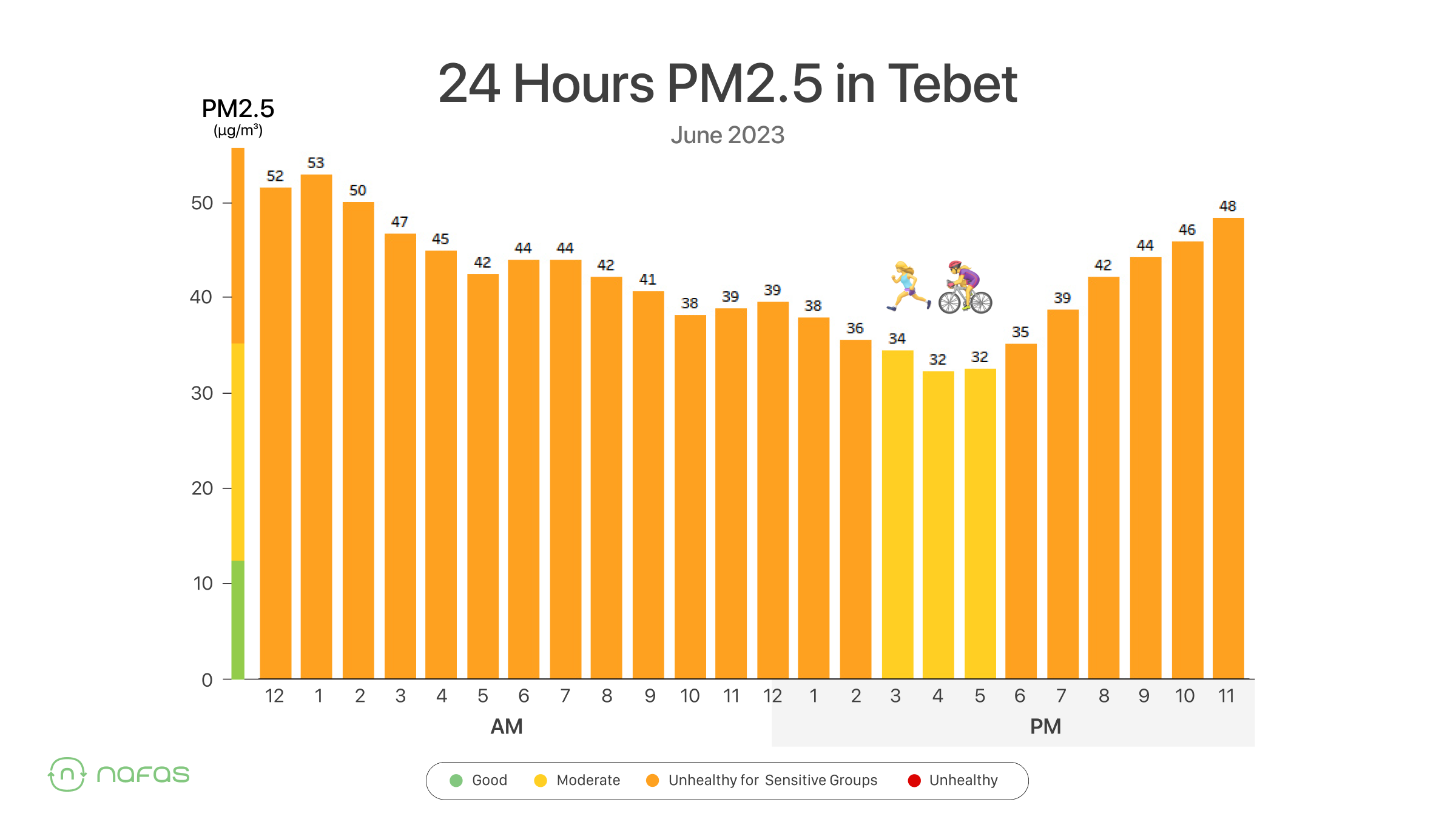
From the diurnal data above, the air quality in Tebet is really bad on most days in June 2023. This can be observed from the many orange colors in the data, which means Unhealthy for Sensitive Groups, such as children, pregnant women, and the elderly. PM2.5 pollution levels only decreased slightly from 3 PM to 5 PM. If you are a Tebet resident who likes to exercise, 3 PM to 5 PM may be a time to be a good option!
However, if we look at the results of a study from Seoul National University, adults (25-30 years old) who exercise regularly outdoors with PM2.5 above 26 µg/m3 have a 33% higher risk of heart disease than those who do not exercise at all. Looking at the diurnal data above, we can see that the hourly average PM2.5 in Tebet throughout the day has exceeded 26 µg/m3. This means that high pollution awareness definitely needs to be prioritized, especially for Tebet residents who like to exercise and do outdoor activities! 🙅🏻
Also, the high average air pollution throughout 2023 in Tebet is apparently equivalent to smoking 247 cigarettes. Even the large Tebet Eco Park has not helped the air quality in the area. This means that greening alone is not enough to reduce air pollution levels. The leaves on plants can only suck in gaseous pollution, not particulate pollution. Fine particulates such as PM2.5 can only be retained and accumulated by the leaves, so they are still present in the air.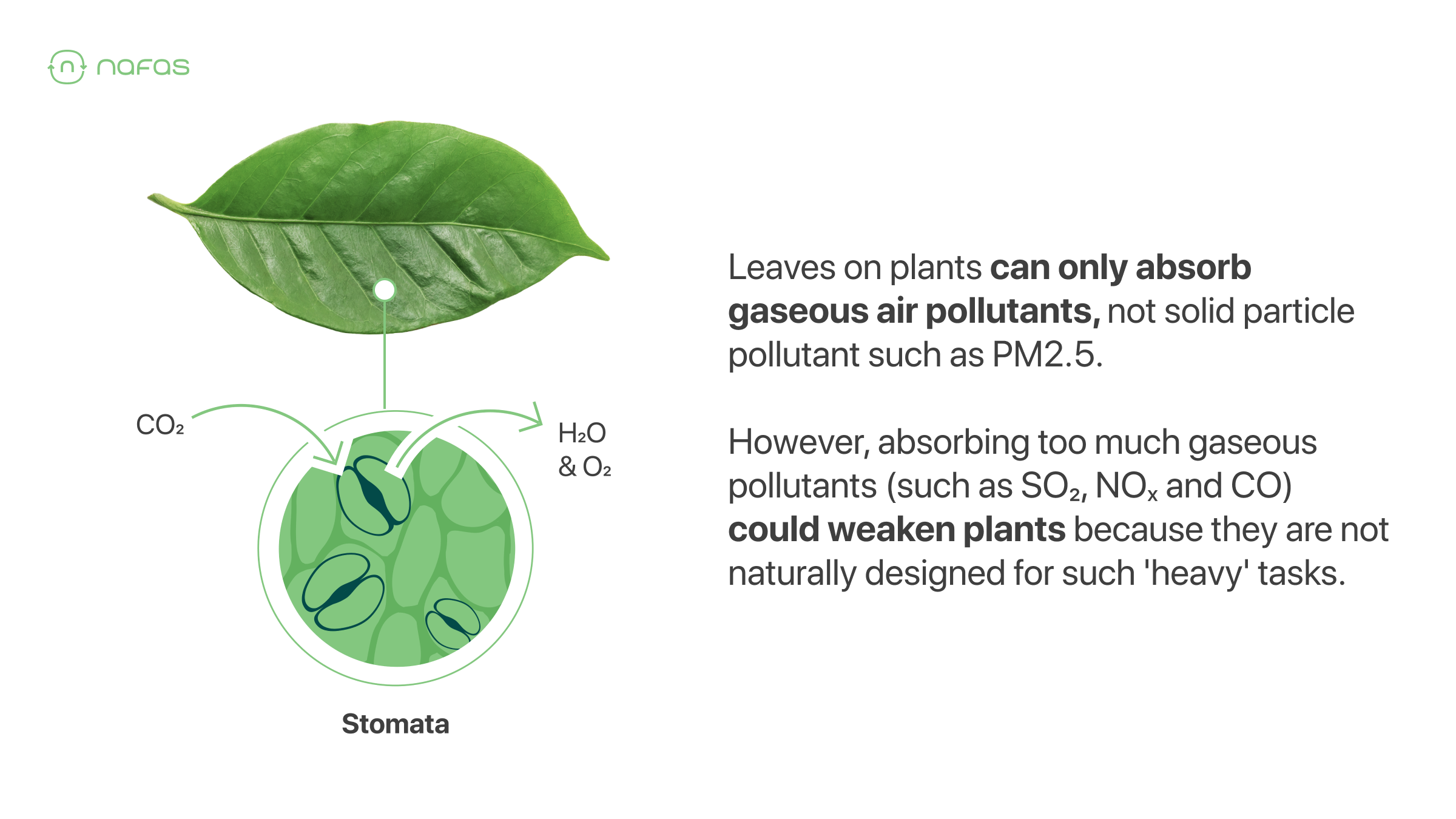
The poor air quality is certainly very concerning and risky for public health, especially for people who live in the Tebet area.
✅ To help mitigate exposure to air pollution, Nafas residents from Tebet can follow these tips:
- Monitor air quality regularly on the Nafas app
- Wear a mask when leaving the house (preferably a respirator type, such as N95)
- If the air quality is poor, avoid outdoor activities.
- Close doors and windows when air quality is poor. Using an air purifier can help clean the air in the room.